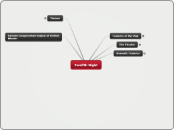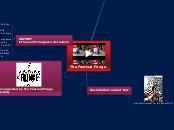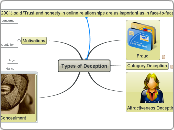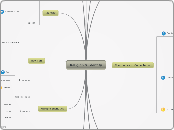Twelfth Night
Fantasy trangressions typical of festival Misrule
Themes
Micro Themes
Master-Servant relationship
Travestry of aristocratic Self-Indulgence
Suffereing
Control of Fate
Self-Delusion
Activity and Passivity
Macro themes
Feast of Fools
Appearance / Illusion and Reality
Mutability of Gender Roles and Identity
Social Class
Deceoption
Folly
Excess, Madness, Love (of different kinds)
Mayhem
Order & Disorder
Dramatic Features
Role of the Fool: Feste
Embodies the role of the theatre
Degree of autonomy
resist instruments of control and authority
social critique
provides commentary, is an observer of events
seemingly impervious to the disguise and deception
He knows of Viola's true nature
Licensed Fool, involved in both plots
Separation and Reunification
Viola and Sebastian
Struggle of young lovers to overcome difficulties
The rest of the characters speak of it implicitly
Even orsino does not actually communicate with Olivia till A5S1
love is hardly explicitly expressed, apart from Antionio to Sebastian and Malvolio's mixup with the letter
Deception amongst characters
ulterior motives
Warped sense of justice
Mistaken identity
Tension and conflict between Characters
plots are intersected to generate more trouble and comedy
Comedic Elements
Humour is presented in an ambivalent manner
Malviolio and Viola's circumstances
The Theatre
Audience has a double awareness of the plot and characters
Dramatic Irony
denounced by the puritans who wished to shut down such establishments
Subplot conflict between Mal and Toby and Anthony as they mock Malvoilio's puritan behaviour
Place for festering sin and revelry
Place for Entertainment and Freedom of Expression
Features of the Play
Renaissance Comedy
The best turn rather than the worst
Not meant to be realistic
Metatheatrical Lens
Draws attention to its own theatrical pretence
Talks about itself as theatrical









